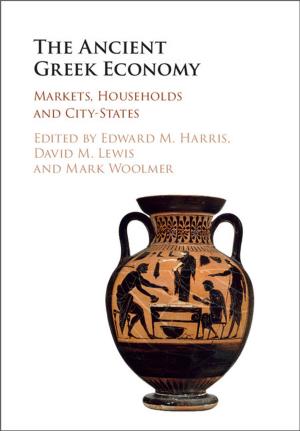Ancient Man in Britain
Kids, People and Places, History, Exploration and Discovery, Ancient Civilizations, Nonfiction, Ancient History| Author: | Donald Alexander Mackenzie | ISBN: | 1230000231842 |
| Publisher: | BLACKIE AND SON LIMITED | Publication: | April 9, 2014 |
| Imprint: | Language: | English |
| Author: | Donald Alexander Mackenzie |
| ISBN: | 1230000231842 |
| Publisher: | BLACKIE AND SON LIMITED |
| Publication: | April 9, 2014 |
| Imprint: | |
| Language: | English |
Ancient Man in Britain
In writing the history of Ancient Man in Britain, it has been found necessary to investigate the Continental evidence. When our early ancestors came from somewhere, they brought something with them, including habits of life and habits of thought. The story unfolded by British finds is but a part of a larger story; and if this larger story is to be reconstructed, our investigations must extend even beyond the continent of Europe. The data afforded by the "Red Man of Paviland", who was buried with Crô-Magnon rites in a Welsh cave, not only emphasize that Continental and North African cultural influences reached Britain when the ice-cap was retreating in Northern Europe, but that from its very beginnings the history of our civilization cannot be considered apart from that of the early civilization of the world as a whole. The writer, however, has not assumed in this connection that in all parts of the world man had of necessity to pass through the same series of evolutionary stages of progress, and that the beliefs, customs, crafts, arts, &c., of like character found in different parts of the world were everywhere of spontaneous generation. There were inventors and discoverers and explorers in ancient times as there are at present, and many new contrivances were passed on from people to people. The man who, for instance, first discovered how to "make fire" by friction of fire-sticks was undoubtedly a great scientist and a benefactor of his kind. It is shown that shipbuilding had a definite area of origin.
The "Red Man of Paviland" also reveals to us minds pre-occupied with the problems of life and death. It is evident that the corpse of the early explorer was smeared with red earth and decorated with charms for very definite reasons. That the people who thus interred xi their dead with ceremony were less intelligent than the Ancient Egyptians who adopted the custom of mummification, or the Homeric heroes who practised cremation, we have no justification for assuming.
At the very dawn of British history, which begins when the earliest representatives of Modern Man reached our native land, the influences of cultures which had origin in distant areas of human activity came drifting northward to leave an impress which does not appear to be yet wholly obliterated. We are the heirs of the Ages in a profounder sense than has hitherto been supposed.
Ancient Man in Britain
In writing the history of Ancient Man in Britain, it has been found necessary to investigate the Continental evidence. When our early ancestors came from somewhere, they brought something with them, including habits of life and habits of thought. The story unfolded by British finds is but a part of a larger story; and if this larger story is to be reconstructed, our investigations must extend even beyond the continent of Europe. The data afforded by the "Red Man of Paviland", who was buried with Crô-Magnon rites in a Welsh cave, not only emphasize that Continental and North African cultural influences reached Britain when the ice-cap was retreating in Northern Europe, but that from its very beginnings the history of our civilization cannot be considered apart from that of the early civilization of the world as a whole. The writer, however, has not assumed in this connection that in all parts of the world man had of necessity to pass through the same series of evolutionary stages of progress, and that the beliefs, customs, crafts, arts, &c., of like character found in different parts of the world were everywhere of spontaneous generation. There were inventors and discoverers and explorers in ancient times as there are at present, and many new contrivances were passed on from people to people. The man who, for instance, first discovered how to "make fire" by friction of fire-sticks was undoubtedly a great scientist and a benefactor of his kind. It is shown that shipbuilding had a definite area of origin.
The "Red Man of Paviland" also reveals to us minds pre-occupied with the problems of life and death. It is evident that the corpse of the early explorer was smeared with red earth and decorated with charms for very definite reasons. That the people who thus interred xi their dead with ceremony were less intelligent than the Ancient Egyptians who adopted the custom of mummification, or the Homeric heroes who practised cremation, we have no justification for assuming.
At the very dawn of British history, which begins when the earliest representatives of Modern Man reached our native land, the influences of cultures which had origin in distant areas of human activity came drifting northward to leave an impress which does not appear to be yet wholly obliterated. We are the heirs of the Ages in a profounder sense than has hitherto been supposed.















